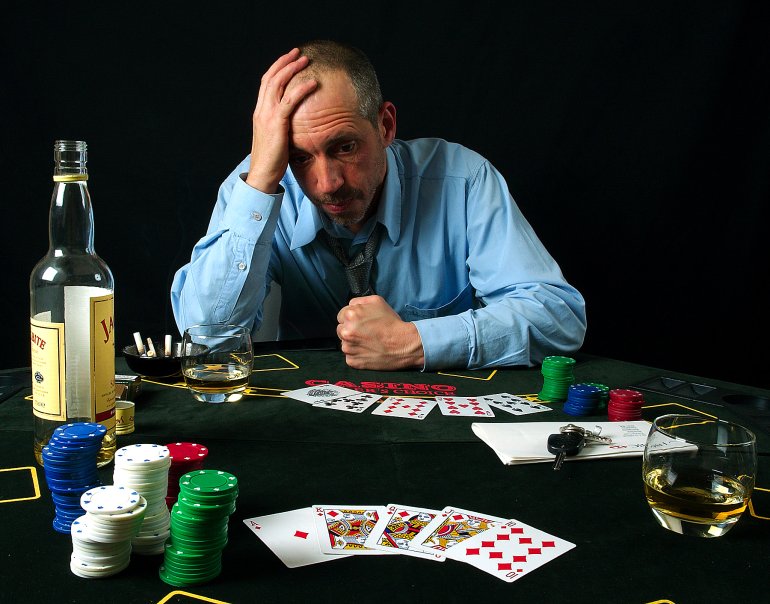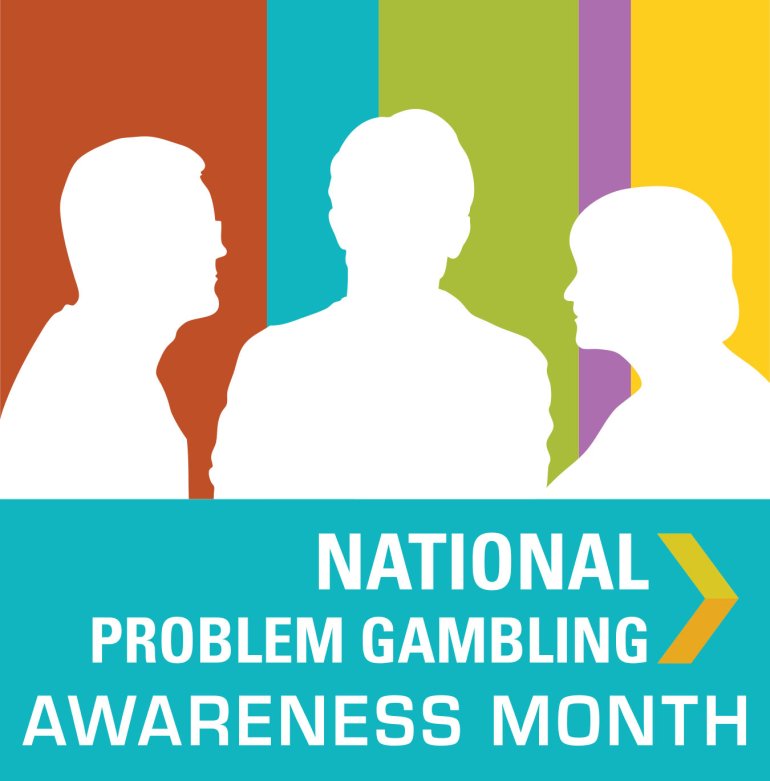
Internet addiction is one of the sharpest problems facing humanity nowadays. This may occur due to the perception of the Internet as a means to satisfy numerous needs: fast and convenient access to information, establishing contacts with other people by communicating in forums, correspondence, and online conversations in social networks, etc. This can lead to the fact that people will spend more time on the Internet, preferring to be on it than other activities. They may also experience an obsessive desire to return to the Internet. It is called Internet addiction.
The danger of Internet addiction is caused by the inadequate perception of the Internet, whose use becomes an end in itself, the lack of Internet culture, and insufficient measures to prevent Internet addiction. The famous psychologist Kimberly Young identifies five significant types of Internet addiction: cybersex addiction (desire to visit pornographic sites and be engaged in cybersex), virtual acquaintances, online gambling, endless surfing on websites and searching for information, and addiction to computer games.
We are interested in problem gambling. Let's discuss where it comes from and how to avoid it. But first, we offer all our readers the opportunity to get tested for gambling addiction. This article from Casinoz is for you if you have more than seven positive answers.
- Have you ever missed work or classes to gamble?
- Have you ever felt unhappy after gambling?
- Has gambling ever badly affected your reputation?
- Have you ever felt remorse after gambling?
- Have you ever gambled to pay off debts or solve your financial problems?
- Has gambling ever reduced your ambition or work efficiency?
- Have you ever felt that it is necessary to return to gambling as soon as possible and get back what you have lost?
- Have you ever been firmly convinced that after a win, you must return to gambling and win more?
- How often do you play until you lose everything?
- Have you ever gambled in debt?
- Have you ever sold anything to gamble?
- Do you have a concept of "money for playing" that you use only for gambling?
- Has gambling ever caused significant financial damage to you or your family?
- Have you ever gambled more than you have planned?
- Have you ever gambled to forget about troubles when bored or lonely?
- Have you ever broken the law to get money for gambling?
- Have you ever had insomnia because of thoughts about gambling?
- Can problems and disappointment create a desire to get away from them by gambling?
- Are you in the habit of celebrating your victories?
- Have you ever thought about suicide after a loss?
According to social studies conducted in the United States, problem gambling is diagnosed in 1-1.5% of the examined gamblers.
How Gambling Addiction Starts
Internet gambling causes addiction more frequently than playing offline because it provides a more rapid effect and allows gambling alone. Youth are primarily captured by gambling because of their immaturity, although people of mature age may show a tendency for gambling. Only a tiny number of addicted gamblers prefer specific types of gambling.
Boredom and feelings of emptiness in life can cause pathological gambling. Some players look for relaxation; others, on the contrary, search for strong emotions. Most players gamble to win, but some gamble to lose or ensure they can win.
Even though the authorities are trying to control gambling, it is legal in most countries. Therefore, it is challenging to separate cultural features from diseases.
The following criteria should be allocated to explain the mechanisms of this addiction: availability, control, and excitement.
- Availability is explained by the fact that the invention of the Internet provides immediate access to many sites of virtual casinos, web pages with the most recent stock information, and online stores where customers can find almost everything. This makes the Internet particularly attractive for gambling.
- Control means private management of a player's actions in cyberspace.
- Excitation is realized as obtaining peak emotional experiences that occur both in the case of win and loss.
Gambling addiction is hazardous because the person can spend a considerable amount of money in a short time, failing to realize what is happening. This kind of Internet addiction is accompanied by excessive emotional involvement in gambling and the desire to devote more time to gambling activities. Formation of addition is accompanied by the fact that a person changes a range of interests, placing gambling at the forefront.
The primary motives for gambling activities have also changed. If earlier participation in online gambling were used for entertainment, later gambling would become the primary way to meet the needs of the individual. Thoughts about gambling appear more and more often and become elements of obsession, and an individual keeps in his mind the different play patterns, even in everyday life.

It is difficult for such a person to go out of the game, regardless of whether he wins or loses, since even short intervals during gambling cause discomfort, restlessness, and anxiety. This leads to the fact that people spend more and more time to gamble. They desire to play more risky; resisting the temptation to resume the game becomes harder and harder.
The formation of problem gambling is facilitated by the fact that at the beginning of gambling, people experience positive emotions in case of victories. Gambling starts being perceived as a safe tool that can be used for entertainment and leisure. The strong desire to try again and win more may arise because victory is accompanied by excitation and saturation with positive emotional experiences. There is the desire to take risks and fantasies about spending the money. An individual begins to like the feeling of adrenaline when making bets.
The situation is somewhat different when a person begins to lose steadily. If the addiction has been formed, then, despite the significant losses and material costs, the person is no longer able to stop, as gambling has become the center of his life. The desire to regain what he has lost constantly accompanies the gambler, displacing all other interests and forcing him to forget the responsibilities at home or work. The euphoria does not appear due to victories and the gap between the bet and the result.
So, the person continues to receive vivid emotions from gambling, and the desire to win becomes particularly obsessive. In such a situation, it becomes difficult to concentrate attention, leading to rash steps, unnecessary risk, and, consequently, a significant loss of money. The need for gambling becomes the leading desire and makes people forget even the satisfaction of biological needs, such as eating and sleeping. This leads to physical exhaustion, considerable fatigue, emotional instability, and rupture of relations with the surrounding society; it can seriously affect the person's health and psychic and emotional state.
_770.jpg)
If the addiction is not removed at this stage, it will become deeper and may completely ruin the social life of the person who suffers from the irresistible desire to stay in the game and is not able to focus on something else. Being "out of the game," he experiences stress and anxiety and can suffer from depression. The relationships in the family are ruined. The ability to perform professional duties is significantly reduced. Thus, at the late stage of Internet addiction, people feel lonely and unemployed, and they may have financial problems.
Gambling with your last money can provoke feelings of guilt and cause stress. But at this stage, the addicted gambler is no longer able to relieve stress by anything other than gambling, so he begins to look for money, take money in debt, and take out a loan to get back what he has lost and relieve stress. This leads to the fact that he has more debts and can not pay them.
Therefore, the gambler is facing serious problems that he can not solve. Gambling is the meaning of life; everything else is perceived as minor and does not deserve much attention.
If an individual suddenly desires adventure, he can meet his desires by searching for the corresponding society. When there is a need for peace, you can also search for the proper society. Pathological gamblers are deprived of the ability to look for their needs in real life. They do not have patience; they cannot establish emotionally close and reliable relationships and maintain them.
All spheres of their life are subject to one thing, i.e., gambling and getting funds for it, while a feeling of emptiness and lack of meaning characterizes their emotions. It is believed that the psychological deficiency causes the addicted behavior. People with problem gambling very often feel themselves dependent on the will of others, but in reality, they are trying to keep everyone under control.
Signs of Addictive Gambling
The significant signs of problem gambling are the following:
- constant focusing on the game, for example, memories about recent games, planning the following games, or thinking about ways to get money for gambling;
- unwillingness to distract from gambling;
- anxiety and irritation due to forced distraction;
- loss of sense of time and the inability to plan to finish playing;
- spending a lot of money on this hobby;
- attempts to get back money that has been lost the next day after a loss (the pursuit of the lost);
- rejection of doing household chores and professional duties in favor of gambling;
- neglect of health, hygiene, and sleep in favor of gambling;
- coffee and other stimulants abuse;
- willingness to eat monotonous food irregularly and randomly without taking breaks for meals;
- feeling of emotional excitement while gambling;
- discussion of games with all the familiar people or, on the contrary, isolation.
- relatives and friends no longer keep trying to persuade you to reduce the time you spend on gambling;
- amount of money and time spent on gambling increases with time.
Causes of Gambling Addiction
The desire for adrenaline and strong emotions drives people to gamble. The body gets used to the constant production of adrenaline and needs to increase the dose, i.e., it requires more and more excitement to satisfy its needs.

Analyzing the factors that may serve as triggers for the appearance of online gambling addiction allows selecting the following ones: a collection of specific personal characteristics, features of an individual's interaction with society, the presence of constant stress in life, features of relations in the family where the gambler grew up, and properties of the Internet environment.
Character Features
Inadequate self-esteem, when a person seeks to improve both the attitude toward himself and an image that is composed when other people are communicating with him, can be the reason for gambling addiction. An individual feels more confident and relaxed while playing online games and expects approval from others. This is especially noticeable in adolescence and youth, where wariness is condemned and seen as cowardice.In addition, gambling in the case of victories allows a young man to improve his financial position and buy fashionable clothes and accessories, which makes it possible to stand out among others and gain popularity among other teenagers. Thus, participation in online gambling allows them to show the qualities considered valuable in the youth subculture, namely recklessness, courage, excitement, and independence.
Adults may be motivated by the desire to get rid of an inferiority complex due to their self-persuasion in their genius, evidenced by victories. The player believes that he can improve his life and achieve respect from others if his financial situation improves due to gambling.
Another reason for gambling addiction is the lack of capacity for self-regulation. This usually manifests in emotional instability, loss of self-control, and the prevalence of irrational actions on balance and consideration. Such gamblers are unable to cope with their negative feelings and emotions, so to get rid of them, they use gambling as a distraction. But the way out of the problem situation can not be found with the help of gambling, and it takes on a systematic character and turns into addiction.
Environment
Another reason for gambling addiction is the specificity of interaction of humans with society, i.e., the difficulties with building relationships with other people, isolation, and loneliness. Such people feel rejection from others, resulting in insecure feelings and suffering from increased anxiety. They use gambling as a means to win over other people to become a part of their group if gambling is common in the society where they live.
A gambler also believes that the availability of money will make him more attractive to others and raise his prestige and popularity, which makes him bet more in the hope of obtaining a significant victory.
Stress
The presence of numerous stressful situations may also be a cause of gambling addiction. In this case, the primary motivation that causes a person to gamble online is the desire to escape from reality. Gambling is considered a means to remove psychological tension, to plunge into an alternate reality where an individual feels comfortable and confident, and to forget about problems that bother him.
The adrenaline rush a gambler may feel while betting makes him feel excited, and his belief in his victory makes his attitude to the future more optimistic. Gamblers dream about spending money and experiencing the pleasure of being in a world of fantasies. Thus, gambling is used to get rid of negative emotions and plunge into a world in which a person feels well and believes in his success.
Atmosphere in the Family
The specifics of the relationship in the family where the future gambler was growing up can also affect the occurrence of gambling addiction. Suppose a child has grown up believing that money is the most incredible value in life. In that case, he will seek to improve his financial situation, and gambling may seem especially attractive to him because there is no need to work and make any efforts.
It is necessary to rely on luck and win a large sum. The development of the addiction is also provoked by members of the family who are gamblers themselves, and this situation is considered normal. At the same time, a cyclic mechanism of ludomania can not be destroyed by the contemplation of the negative influence of gambling on relatives if they are already addicted.
Internet
Properties of the Internet environment that may be triggers of gambling addiction include availability and anonymity. Free access to online gambling makes it particularly attractive because people can satisfy their needs for excitement
at any time without leaving home. Anonymity removes the fear of being recognized, especially if relatives and friends disagree with this passion. Thus, the Internet leads to the disappearance of barriers and conventions, which allows the individual to realize his desires. Gambling is considered affordable, safe, and exciting. This often encourages people to visit sites with gambling games and eventually leads to addiction.
Stages of Gambling Addiction
The process of the appearance of gambling addiction encompasses several stages. It starts with the first victory, which serves as a positive confirmation. At this stage, gambling is not systematic, and its motivation includes a desire to have fun, diversification of life, and attempts to try something new and interesting. If losses accompany the first such attempts, gambling activity disappears. Even a little prize evokes positive emotions, a sense of satisfaction, and an adrenaline rush.

At the next stage, the person starts playing more often. He experiences euphoria, anticipating victories that seem inevitable. He experiences positive emotions and confidence in success. However, bets are still small at this stage, and gambling is considered a way to have fun.
In the future, gambling will begin to take up more time in human life with the formation of strong needs in gambling, emotions, and feelings that are evoked by it. The desire to play arises spontaneously and is very obsessive, and even losses do not reduce this desire because the gambler is convinced of the possibility of winning. Suppose the gambler fails to regain what he has lost and faces financial difficulties forcing him to temporarily give up gambling. In that case, he has a sense of anxiety, depression, irritability, and increased aggressiveness. All this, in turn, affects relationships with relatives and friends, creating conflicting situations.
An individual distances himself from them, which will further exacerbate the degree of negative emotional state. In this case, the victory is perceived as a solution to all problems, and it encourages the gambler to spend all his savings, borrow money, or take out a loan.
If the series of losses continues, it can lead to extreme poverty and the destruction of relationships with family and friends, who also suffer from the way of life of the addicted gambler. Only at this stage does he realize he is doing something wrong. He begins to feel guilty and seeks to stop playing. However, he can not stop gambling anymore; periods when the gambler avoids gambling are replaced by disruptions, even more significant losses, or spending large amounts of money.
Usually, during this period, the gambler already has a lot of debt, which he can not give. He is already unemployed because constant thoughts about games do not allow him to focus on the performance of professional functions. As a result, the addicted gambler suffers from depression and loneliness. His aggressiveness and irritability push away relatives and friends.
Three Stages of Problem Gambling
The American researcher R.Kaster identified three stages of gambling addiction:
- Wins. It is characterized by the following features: random playing and frequent victories; imagination precedes and accompanies gambling; an increase in bet size, fantasies about victories, massive winnings, and irrational optimism.
- Losses. This stage is characterized by the following things: gambling alone; boasting of victories; thinking only about gambling; episodes of losses, which become longer; inability to stop gambling; lies and cover-up of the problem from friends; decrease in care of the family; reduction of working hours in favor of playing and failure to pay debts. Personality changes may include irritability, fatigue, unsociability, severe emotional aura of the house, borrowing money for gambling, both legal and illegal large debts, inability to pay debts, and desperate attempts to stop gambling.
- Disappointment. Signs of the disappointment stage include loss of professional and personal reputation; a significant increase in time spent on gambling, a considerable increase in bet size; distancing from family and friends; reproaches of conscience, remorse, hatred towards others; panic; hopelessness; thoughts of suicide; arrest; divorce; alcohol abuse; emotional disturbances.
Thus, problem gambling is dangerous because it causes an alteration of social ties and psyche. The cause of this disorder is not fully understood. Unfortunately, the wholly formed gambling addiction is irreversible. A person who suffers from gambling addiction needs psychological help.
How to Get Rid of Gambling Addiction
It has been known that any disease is easier to prevent than to treat. The most important things for preventing online gambling addiction are educational activities aimed at expanding understanding of personality based on the peculiarities of gambling addiction, stages of its formation, and the adverse impact that it has. It is precisely the thing that we are doing now:) Do not gamble a lot, limit the amount of money for gambling, get pleasure from the process, and try not to give in to excitement.
But if suddenly you still belong to 1-1.5% of players who have become addicted gamblers, you need to receive qualified psychological help. The elimination of gambling addiction must take into account the specific reason that caused it, and it should be aimed at its removal. People usually can not understand why they have decided to do one or another thing.
First, realize your problem and gain the motivation to eliminate problem gambling. Typically, gamblers initially cope with the problem alone, as their attitude towards treatment from a psychologist is quite skeptical. They agree to go to the doctor only after repeated attempts and failures. Do not repeat these mistakes. The sooner you visit a competent psychologist who is a specialist in gambling, the less you will ruin your life.
The specialist will optimize your self-esteem and adjust the motivation to use objects of addiction for self-affirmation. A good psychologist will help harmonize your interpersonal relationships with others. This will reduce the desire to plunge into virtual reality to satisfy your needs. Individual counseling and training in groups can be used for such purposes. It is also efficient to use family counseling in the case when
the cause of the addiction is the development of family problems.

If, for some reason, you can not or do not want to see a psychologist, you can try to find help using the online platform Gambling Therapy (https://www.gamblingtherapy.org/). It provides people who suffer from gambling addiction with psychological support and assistance. The service was founded in 2004 and used online resources to help gamblers. Its staff includes a team of professionals whose qualification allows for solving problems with gambling.
Gambling Therapy offers support, information, and advice in 28 languages. Anyone from all over the world can take advantage of this site. Here are some services that are offered:
- forums (available 24 hours per day);
- support groups with moderators;
- support groups without moderators (available only at the weekend and on holiday);
- personal assistance (12.00. to 8.00 p.m. Moscow time, as well as additional hours);
- E-mail support (E-mail can be sent 24 hours per hour);
- many informational resources for gamblers who suffer from problem gambling.
All services are anonymous. The team of online advisors makes all efforts to help addicted people and uses other sources of assistance if necessary. One of the members of the forum Gambling Therapy left a comment:
I believe that Providence sent me this site. I would never have achieved such results without it. My sincere thanks to the organizers of this resource.
Try it; it's a very good chance.
The following casinos offer numerous responsible gambling tools.
| Casino | Bonuses | Editors rating | |||
| 100% to 1000 $ x35 |
Play
T&C applies, 18+
|
||||
| — |
Play
T&C applies, 18+
|
||||
| — |
Play
T&C applies, 18+
|
||||
| 100% to 400 $ x50 |
Play
T&C applies, 18+
|
||||
| — |
Play
T&C applies, 18+
|
Conclusion
Online gambling addiction is an important and urgent problem since its consequences include the destruction of interpersonal relations, deformation in the structure of personality, bankruptcy, and unavailability to pay off debts. This affects all areas of a person's life. Correction of ludomania should be based on the identification of the main factor that was decisive in the development of addiction, and it is necessary to overcome this factor.






























